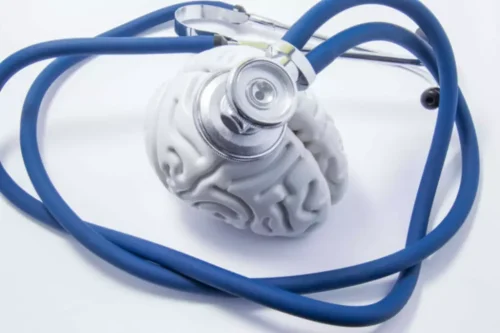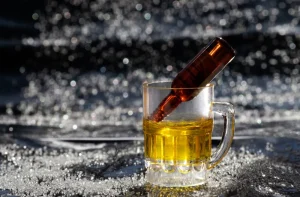
A good diet can help promote improved energy and enhance the body’s ability to respond to physical stress during recovery. Your diet can also impact neurotransmitter levels and function and gut bacteria. The best approach to creating a nutritional plan during alcohol recovery is to consult a nutritionist who can provide personalized guidance that will work best for you and help you meet your goals. A nutritionist can help you address specific dietary needs, establish regular meal patterns, achieve portion control and help meet many other important nutritional needs. Instead of weight gain, those with a very severe alcohol addiction may experience malnutrition.
What Is the Difference Between Physical & Psychological Dependence?
According to the National Survey on Drug Use and Health, 9.2 million U.S. adults had both mental health disorders and a substance use disorder in 2018, yet nearly 60% did not get treatment. This typically occurs after five or more drinks for men and four or more drinks for women. A personalized plan can help make the most of nutritional therapy, so you may want to consider working with a dietitian. They’ll help you create a diet that addresses your unique health situation, weight, and personal diet needs. Ask your doctor for a referral, or contact your local hospital, community health center, or university. There are holistic addiction treatment centers and substance use treatment programs that emphasize nutrition education, too.

Nutrient-Dense Snack Options for Alcohol Recovery
If you’re on a mission to beat alcohol forever, be sure to resolve your all of your Missing Links in the Hierarchy of Alcohol Recovery. I prefer to use coconut milk instead of regular milk because it contains no sugar; milk contains a hefty dose of lactose. While I do not have any sensitivity to dairy, I’ve noticed that drinking lots of milk causes me to gain weight. For this reason, I do use organic milk during periods in which I’m trying to gain muscle and strength.
Best Diet & Types of Foods to Eat for Alcohol Detox
- Not getting enough of this vitamin can lead to anemia, depression, confusion, and a weak immune system.
- Research shows that drinking a lot over a long time — as in alcohol use disorder — often leads to poor nutrition.
- Complex carbohydrates stabilize blood sugar levels and provide vitamins, minerals and fibers.
- As you feel more stable and watch the pounds shed from your mid-section, you’ll stop missing sugary beverages forever.
- Antioxidants help protect the body from free radicals (unstable molecules that can damage DNA and other cell structures).
- This may include things like an IV drip for hydration or vitamins to keep levels of both stable throughout withdrawal, leading to a smoother transition to treatment.
You can replace flour products with “slow carbs” – i.e., foods higher in complex carbohydrates that digest slower, providing longer-lasting energy, curbing cravings, and reducing insulin spikes. Juices and sodas account for most of the sugar consumed in the modern diet. These can be replaced with low-sugar kombuchas, unsweetened iced tea, or sparkling waters with natural flavors.
Experts suggest a diet with lots of complex carbs like whole grains, veggies, peas, and beans. When you call our team, you will speak to a Recovery Advocate who will answer any questions and perform a pre-assessment to determine your eligibility for treatment. If eligible, we will create a treatment plan tailored to your specific needs. If The Recovery Village is not the right fit for you or your loved one, we will help refer you to a facility that is. Meal planning in recovery is not just about physical nourishment but also about establishing a routine that supports sobriety and well-being.
In the early stages of recovery, your body needs its energy for healing. Strenuous activities that significantly raise your heart rate or blood pressure, like running, weightlifting, or contact sports, are best left for later. But with your doctor’s permission, you can stay active after brain surgery. If you are nauseous, eating bland foods in small amounts may be helpful. You may also be advised to avoid certain foods and beverages, such as spicy foods, acidic foods like citrus fruits and tomatoes, caffeine, and alcohol until you have fully healed.
Specific Nutrients to Look Out For
- But nourishment is important once a physician deems an individual stable enough to eat.
- Additionally, the adaptations that the brain develops disrupt crucial neuropathways, decreasing neurotransmitters and their ability to move normally through the brain.
- Many people with alcohol use disorder also have other mental health conditions like depression, anxiety, bipolar disorder, or schizophrenia.
- Alcoholism is a disease that you can overcome with evidence-based treatment.
- There are many things that can affect your sleep—physically and mentally.
Alcohol consumption has a profound impact on the body’s nutritional health, often leading to malnutrition and specific nutrient deficiencies. Malnutrition in the context of alcohol use is multifaceted, involving both a deficiency in essential nutrients and an imbalance in energy intake. A generally balanced, nutrient-rich, and anti-inflammatory diet, such as a Mediterranean-style diet, can help improve prostate and overall health. These eating patterns are abundant in vegetables, fruits, whole grains, legumes, lean protein, and healthy fats.
- Malnourished individuals in detox should receive moderate amounts of protein.
- As you’ve likely noticed, alcohol can provide temporary feelings of happiness and relaxation.
- Or a doctor could prescribe drugs to assist with other emotions common in recovery.
The Rich History of Xanax
- Your brain is seeking dopamine, the chemical that makes us feel pleasure.
- Furthermore, they can aid in the restoration of the body’s nutrient reserves [2].
- A struggle with alcohol use impacts many aspects of a person’s life, including diet and nutrition.
- Start by talking to your doctor about how much alcohol you’ve been using and your plan to quit.
- Navigate the twists and turns of the recovery process with our comprehensive roadmap to redemption.
Alcoholism is a disease that you can overcome with evidence-based treatment. Alcohol rehab centers are dedicated to assisting you during this difficult time, and a professional treatment team can provide you with healthy foods that can expedite your alcohol recovery. Many people consume fried and greasy foods while alcohol recovery diet drinking alcohol, which is why these foods tend to be craved when people stop drinking. Similar to sugar, these foods stimulate the body to release dopamine. Experts suggest a diet composition for those in alcohol recovery of approximately 45% carbohydrates and 30% healthy fats, with the remaining 25% from protein.

Add Bright Fruits and Veggies as Part of Your Sobriety Diet
Before we get started, you might be wondering what causes alcohol withdrawal? When an individual consumes unhealthy amounts of alcohol over an extended period of time, their body can adapt to the depressive effects of alcohol, which slows down the central nervous system. When a person then stops drinking alcohol, their central nervous system can become hyperactive and dysregulated, leading to various withdrawal symptoms. Some of the most common withdrawal symptoms include anxiety, nausea, insomnia, and shakes. Other symptoms, like seizures and hallucinations, can be more severe and even life-threatening.
